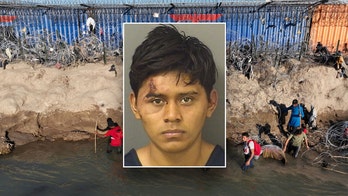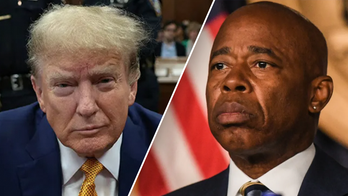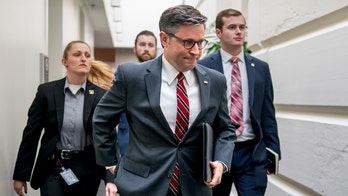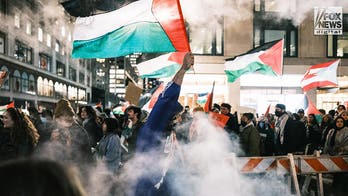President Bush said he and Treasury Secretary Henry Paulson share concerns with citizens about jobs and savings, and safeguarding financial systems -- like giant banker Citigroup -- is the best way for the economy to recover.
Bush said he spoke with Paulson while flying back from Latin America and agreed that a bailout of Citigroup was necessary.
"We've made these kind of decisions in the past, we made one last night and if need be, we're going to make these kind of decisions to safeguard our financial systems in the future," he said.
Overnight, the Treasury Department announced an emergency bailout of Citigroup, which is getting $306 billion in loans and securities of its residential and commercial real estate and other assets in exchange for preferred shares of its stock being submitted to the Treasury and Federal Deposit Insurance Corporation.
In addition, the Treasury announced it is investing $20 billion in Citigroup from the Troubled Asset Relief Program in exchange for preferred stock. Citigroup will restrict enhanced executive compensation and implement the FDIC's mortgage modification program.
The Citigroup move is the latest in a string of high-profile government bailout efforts. The Fed in March provided financial backing to JPMorgan Chase's buyout of ailing Bear Stearns. It followed six months later with a take-over of mortgage giants Fannie Mae and Freddie Mac and a financial lifeline to insurer American International Group.
Bush said he informed President-elect Barack Obama before the bailout was announced because he promised the American people and the incoming president that "anytime we're to make a big decision during this transition, he will be informed as will his team. Secretary Paulson is working closely with the president-elect's transition team. It's important for the American people to know there's close cooperation."
Briefing reporters later, White House deputy press secretary Tony Fratto would not identify any other firms or institutions that the government might help next. "We would never foreshadow any specific actions involving private firms, but I think it's safe to say ... that we take threats to our financial system seriously, and we stand ready to take any steps necessary to prevent systemic events in our economy."
At the Treasury, Bush also met with his Cabinet, which was already scheduled to discuss a US-China strategic economic dialogue meeting.
The Cabinet meeting was in preparation for the next U.S.-China meetings on economic cooperation. Paulson started this two years ago and the meetings take place every six months or so. The president was expected to give his Cabinet a personal readout of his meeting with Chinese President Hu Jintao at APEC in Lima, Peru over the weekend.
Though below seasonal temperatures for Washington, D.C., Bush walked out from the East Wing of the White House, crossed East Executive Drive, over to Treasury and up the steps to see Paulson.
FOX News' Anne McGinn and The Associated Press contributed to this report.




